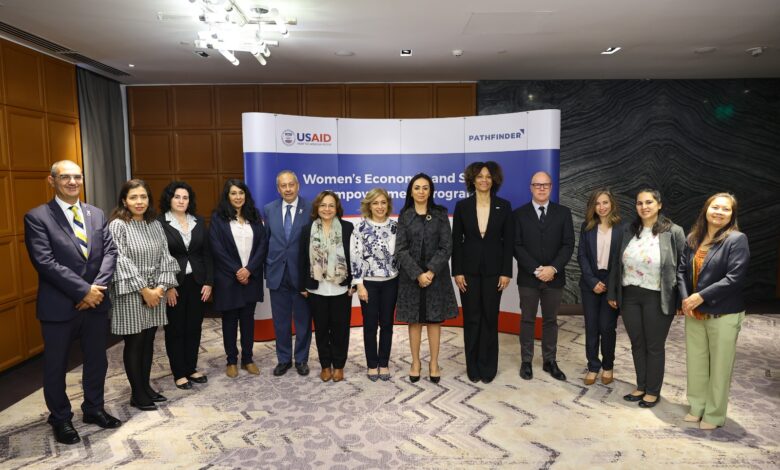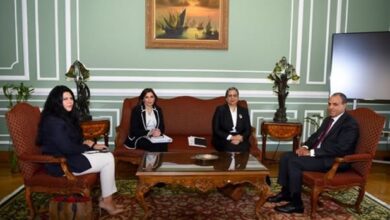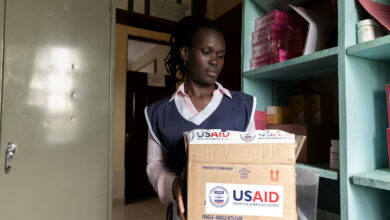
On Tuesday, an event was held to discuss the baseline study for the Women’s Economic and Social Empowerment Program funded by USAID and implemented by Pathfinder under the title “The Most Important Visions and Results” in cooperation with the National Council for Women (NCW) and the program partner, the Egyptian Center for Public Opinion Research (Baseera).
The event was held in celebration of International Women’s Day, March 8, and Egyptian Women’s Day, March 16, the Women’s Economic and Social Empowerment Program funded by the United States Agency for International Development (USAID), and implemented by Pathfinder, in cooperation With the National Council for Women (NCW) and the program partner, the Egyptian Center for Public Opinion Research (Baseera).
The event was attended by Maya Morsi, President of the National Council for Women, Margaret Sancho, Deputy Director of the US Agency for International Development in Egypt, Khaled Bassiouni, Director General of Financial Inclusion at the Central Bank of Egypt, and Maged Othman, CEO of Baseera.
The USAID-funded Women’s Economic and Social Empowerment Program is designed to engage, benefit, and partner with private sector and civil society initiatives to encourage women’s participation as an active workforce in society.
To also stimulate demand for financial services, promote tailored and market-based solutions for women’s economic empowerment, and to promote prevention of and response to gender-based violence so as to promote women’s economic and social empowerment.
The USAID staff believes that sustainable development is only possible with the contributions of all members of society.
Equality among women is key to unlocking Egypt’s full potential.
That is why USAID is proud always in partnership with the Egyptian government to build a more inclusive future for all Egyptians, Sancho said.
The Women’s Economic and Social Empowerment Program firmly believes in the power of knowledge and research to make wise decisions and to design and develop interventions and activities driven by the real needs of women, she added.
During the event, the results of the baseline study were presented, the data of which was collected through interviews with workers in the garment manufacturing, retail, and agribusiness sectors.
The main conclusions, challenges and recommendations of the study were presented by the speakers and the relation of the main findings to the program interventions was presented.
The Women’s Economic and Social Empowerment Program provides a comprehensive model through the program’s objectives to enhance the work environment for women in the private sector, expand financial inclusion, and reduce the social and economic impacts of gender-based violence.
Dina Kafafi, Director of the Women’s Economic and Social Empowerment Program, stated, adding the baseline study results contribute to the development of well-designed interventions to meet the real needs of women.




